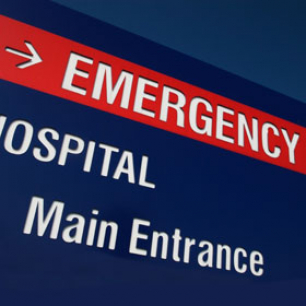



Cannabis is the most widely used illicit drug in Australia and its use is associated with an increased risk of involvement in motor vehicle accidents, work place accidents, mental health disorders, and respiratory and other health harms. Given the health and injury risks associated with cannabis use, the hospital emergency department presents a potentially effective setting for which to deliver cannabis interventions; yet to date, there has been no well conducted study of the nature and feasibility of an effective brief cannabis intervention delivered in an ED setting. This project will collect pilot data on the feasibility and efficacy of a very brief intervention for cannabis use and related problems within an Australian ED setting.
The development of therapeutic approaches and modalities that could be efficient in terms of time and effectiveness have been explored in the substance use field, with the majority of studies focusing on excessive use of alcohol and tobacco. Review of the tobacco literature suggests that about 5% of smokers quit after receiving simple advice from their physicians and several studies have found that brief (10-20 minute) motivational interventions have a significant effect on various measures of substance use. Similar findings have been reported for interventions delivered in Accident and Emergency settings, which are considered to offer unique ‘teachable moments’ as patients’ presentations may be related to their substance use. Given the prevalence of cannabis use and its associated harms, as well as the reluctance of users to seek assistance for their cannabis use, it is becoming increasingly necessary to provide a method of early intervention that may alert users to the longer term problems of their own cannabis use. The emergency department has been identified as a setting whereby ‘teachable moments’ may occur, and research supports the idea that the emergency department may serve an underutilised, yet important role in identifying and helping patients with substance use problems. .To date, however, there has been no well conducted study of the nature and feasibility of an effective brief intervention delivered at this teachable moment in an ED setting for cannabis users.
To collect pilot data on the effectiveness of a very brief intervention based on motivational interviewing and delivered within the Emergency Department setting, in reducing cannabis use and related harms.
This feasibility study uses a simple pre-post design and is designed to assess the impact of a very brief intervention, in the form of screening, assessment, and providing brief feedback about cannabis use to patients in an emergency department setting, who may or may not be considering changing their cannabis use behaviour. Patients (n = 70) who meet the studies selection criteria, including cannabis use in the past 90 days, will be recruited into the study and complete a screener and brief assessment regarding their cannabis use and experience of related problems. This will require approximately 5-10 minutes of the participant’s time. All responses will be collected electronically on a laptop or iPad. Participants will then be given a brief summary of their results, plus a follow-up email one week later containing tailored advice and feedback about their cannabis use and related problems. Participants will be followed up at one month.
56 participants have been recruited into the study and 30 have been followed-up (recruitment/follow-up is ongoing). Preliminary analyses show a significant reduction in frequency of cannabis use (T = 51.5, p = .024, r = -.29), severity of dependence scores (T = 30, p = .046, r = -.26), and cannabis-related problems (T = 89, p = .026, r = -.28). A trend to increased motivation to reduce/quit use was also noted but did not reach the .05 level of significance. This project is ongoing and will be expanded to additional sites in 2015.
Posters:
Webb, L., Clement, N., Matalon, E., Golding, M., & Copeland, J. (2014). A very brief intervention for cannabis users in an emergency department setting. Australasian Professional Society on Alcohol and Other Drugs (APSAD) Scientific Conference, Adelaide, Australia, 9-12 November.
Webb, L., Clement, N., Matalon, E., Golding, M., Tan., J, & Copeland, J. (2014). A very brief intervention for cannabis users in an emergency department setting. National Drug and Alcohol Research Centre (NDARC) Annual Symposium, Sydney, Australia, 8 September.
Demonstration of the feasibility and likely efficacy of a brief intervention for cannabis related problems in an Accident and Emergency setting. Establishing the efficacy of VBIs has implications for those at-risk of experiencing cannabis related harms by intervening early and bridging the gap between prevention activities and treatment.



